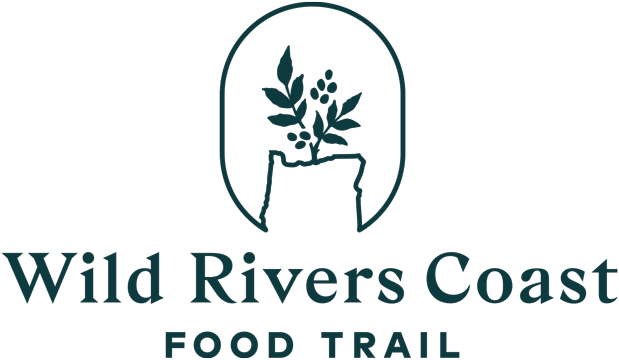Frequently Asked Questions
What is the Wild Rivers Coast Food Trail?
The Wild Rivers Coast Food Trail is a collective effort that connects locals & visitors to the bounty of the Wild Rivers Coast. It’s an opportunity to taste the place of each unique community in our region.
A group of nearly 40 businesses from Brookings to Reedsport make up the Wild Rivers Coast Food Trail. All of the businesses feature local food, sourcing food within 150 miles of their respective locations. There are 7 categories of businesses – Farms & Ranches, Eateries, Seafood, Markets, Craft Beverages, Artisan Products, & Experiences.
Why was the Food Trail established?
The Food Trail is a way for locals and visitors to have access to locally crafted products from our Region. Supporting local food is a way to support our local communities and the producers/crafters that work hard to grow and use our local ingredients. Collectively marketing and promoting each and every business that sees the value in sourcing local makes the Food Trail a true community project!
Are all Food Trail stops open year round?
Not necessarily! While restaurants and brew pubs are open year round, you can expect local foods to be served primarily during their respective seasons (freezing and processing can extend the availability of local foods). Local food also means seasonal and fresh, so farms and markets are typically open seasonally; be sure to check the individual business website for up to date information about each location.
Also, please note that any changes made to a food trail member’s address, phone number, hours, etc. will be reflected here on this website, but NOT always on the brochure. For planning purposes, please base all your visiting plans on the information on this website or on an individual member’s website.
What is the history behind the Food Trail?
The Wild Rivers Coast Food Trail initially started in 2015 as a Farm Trail extending from Port Orford to Bandon. Following a Travel Oregon “Rural Tourism Workshop Series” in 2013-14, the Eat Fresh & Local (EFL) Team was formed to build economic opportunities around Culinary and Agritourism projects. They held networking events in all three parts of the Region and listened to stakeholders about the kinds of activities they would like to see developed in our Region. The Farm Trail idea came from a networking event that was held in the Northern part of Curry County, and was modeled after the Hood River Fruit Loop. The Farm Trail was piloted for three years with 9 businesses, and grew in popularity.
As the third year of the Wild Rivers Coast Farm Trail came to an end, the Eat Fresh & Local Team decided that they wanted the trail to represent more of the local food in the area. With support from the Farm Trail members, the R.A.R.E AmeriCorps, Travel Oregon and the Oregon Coast Visitors Association, the EFL Team expanded the farm trail in both scope and geography, creating the Wild Rivers Coast Food Trail as it is today.
Can other businesses join the Wild Rivers Coast Food Trail?
Every two years there is an opportunity for businesses who meet the criteria to join the Food Trail. We welcome ideas from the community - AND visitors - as to which local farms, food markets, eateries, craft beverage-makers, and other local food makers would be a good fit for the Wild Rivers Coast Food Trail. Please feel free to email your ideas to wrcfoodtrail@gmail.com.
What is the criteria to be on the Food Trail?
The Wild Rivers Coast Food Trail defines local as “a product - or the majority of the ingredients in a product - which originates within 150 miles of the physical location of the entity being listed".
At least 50% of the product displayed or for sale at a farm must be grown/raised/harvested/produced on that farm.
Restaurants must source a yearly average of at least 33% of the food ingredients used in their business locally. We also strongly encourage restaurants to promote the producers they use on the menu or in the restaurant.
Other businesses must have at least 50% of product sold either processed or value added locally. This includes coffee beans roasted in house, bread baked, beverages brewed or distilled in-house, etc.
Feel free to reach out at wrcfoodtrail@gmail.com to learn more.
